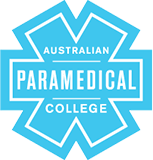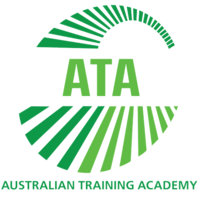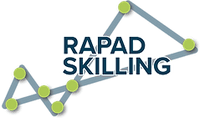
Study areas
Aviation and Piloting
Embarking on a career in aviation and piloting can be an exciting journey, and it all begins with taking the right courses. At Courses.com.au, you can...
Driving and Transport
Are you interested in exploring a rewarding career in the Driving and Transport sector? This industry offers diverse opportunities for individuals loo...
Drones and Remote Piloting
Drones and Remote Piloting is an innovative field that offers exciting career opportunities in Australia. With the increasing use of drones across ind...
Logistics
If you're considering a career in logistics, Courses.com.au offers a comprehensive range of Logistics courses across Australia. With 63 courses listed...
Maritime
Looking to embark on a rewarding career in the Maritime industry? Courses.com.au offers a comprehensive range of Maritime courses that cater to learne...
Rail
If you're looking to kickstart your career in the Rail industry in Australia, Courses.com.au offers a comprehensive range of Rail courses designed to ...
Warehousing
If you're considering a career in the Warehousing sector, you're in luck—Courses.com.au lists a remarkable selection of Warehousing courses to help yo...
Popular education and training courses
Diploma of Business (Operations)
- There are no mandated entry requirements.


Doctor of Engineering
- There are no mandated entry requirements.
 Engineering Institute of Technology
Engineering Institute of Technology
Certificate III in Non-Emergency Patient Transport
- There are no mandated entry requirements.
 Australian Paramedical College
Australian Paramedical College
Certificate II in Transport Security Protection (Air Cargo Examination Officer)
- Must pass a valid background check before accessing security-restricted resources for AVIG0001: Work in a transport security environment.
 Asset College
Asset College
Certificate II in Transport Security Protection
- Must pass a valid background check before accessing security-restricted resources for AVIG0001: Work in a transport security environment.
 Asset College
Asset College
Certificate IV in Competitive Systems and Practices
- There are no mandated entry requirements.
 Efficiency Works
Efficiency Works
Certificate III in Business (Administration)
- There are no mandated entry requirements.
 Upskilled
Upskilled
Certificate IV in Supply Chain Operations
- There are no mandated entry requirements.
 College for Adult Learning
College for Adult Learning
Certificate III in Commercial Cookery
- There are no mandated entry requirements.
 Mint International College
Mint International College
Certificate III in Supply Chain Operations
- There are no mandated entry requirements.
 National Food Institute
National Food Institute
Certificate II in Food Processing
- There are no mandated entry requirements.
 National Food Institute
National Food Institute
Diploma of Logistics
- There are no mandated entry requirements.
 College for Adult Learning
College for Adult Learning
Professional Certificate of Competency in Dual Fuel Engines
- There are no mandated entry requirements.
 Engineering Institute of Technology
Engineering Institute of Technology
Certificate IV in Boating Services
- There are no mandated entry requirements.
 Australian College of Pioneers
Australian College of Pioneers
Diploma of Event Management
- There are no mandated entry requirements.








Bachelor of Business
- There are no mandated entry requirements.








Certificate III in Driving Operations
- There are no mandated entry requirements.








Diploma of Procurement and Contracting
- There are no mandated entry requirements.






Certificate II in Driving Operations
- There are no mandated entry requirements.
 United Transport Solutions
United Transport Solutions
Certificate III in Events
- There are no mandated entry requirements.








What type of course is right for me?
Vocational Education and Training
VET is designed to teach you workplace knowledge and practical learning to ensure you are job-ready in the skills employers need.
VET courses are nationally recognised and delivered by Registered Training Organisations (RTO).
- Job-ready skills
- Nationally recognised qualification
- Shorter course durations
- Lower entry requirements
Higher Education
Higher education is focused on academic and theoretical studies and can lead to a broad range of professional careers.
Higher education courses are nationally recognised and delivered by universities.
- Broad career options
- Nationally recognised qualification
- Longer course durations
- Higher entry requirements
Industry Training
Industry training is designed with direct input from industry experts and employers, ensuring the content is relevant to current job market trends.
Industry courses do not lead to a formal qualification but many offer industry recognised certifications.
- Specialised skills
- Industry recognised
- Shorter course durations
- Lower entry requirements
More about transport and logistics courses
Discover the world of Transport and Logistics courses at Courses.com.au, where you can find a comprehensive list of 268 courses offered by various training providers across Australia. Whether you are just starting out or looking to enhance your skills, there is something for everyone. Beginner courses such as the Certificate III in Non-Emergency Patient Transport and the Certificate III in Supply Chain Operations prepare learners for rewarding careers in different sectors within Transport and Logistics. If you have prior experience or qualifications, advanced options like the Diploma of Logistics await to enhance your expertise further.
For those serious about pursuing a fulfilling career in this dynamic field, relevant job roles include positions such as Inventory Controller, Warehouse Manager, and Logistics Manager. As the logistics sector continues to grow, employment opportunities are plentiful. By enrolling in courses like the Licence to Operate a Forklift Truck or the Certificate II in Transport Security Protection, you can position yourself for these exciting job roles.
Several reputable training providers offer campus-based courses, giving you the chance to learn in a supportive classroom environment. Institutions such as South Metropolitan TAFE, which teaches the Certificate III in Aviation (Cabin Crew), and Asset College, offering the Certificate II in Transport Security Protection, are just a few examples of quality education institutions available to you. These providers are dedicated to not only imparting knowledge but also to preparing students for the realities of the industry.
By choosing to study Transport and Logistics, you open up a world of possibilities both locally and nationally. The diverse range of courses available facilitates not just education, but also practical training tailored to meet industry needs. Explore offerings such as the Certificate III in Driving Operations or the Certificate III in Commercial Cookery, setting the stage for your success in roles like Truck Driver or Bus Driver. Visit Courses.com.au today to embark on your educational journey in Transport and Logistics, and take the first step towards a rewarding career.
Courses by location
Further reading


How to start a career in Logistics
14th October 2021

